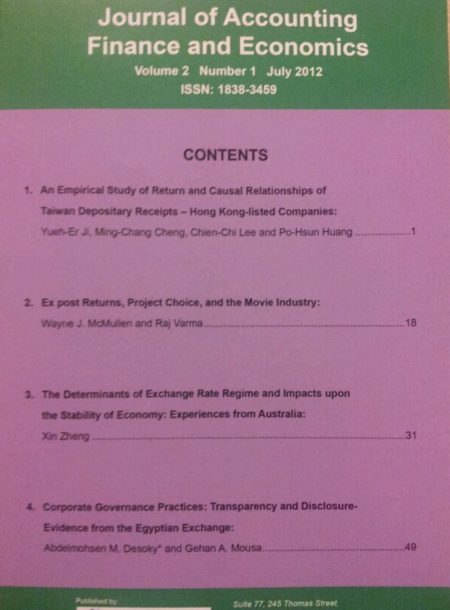Journal of Accounting, Finance and Economics
Vol. 8. No. 1. March 2018 Issue, March 2018, Pages: 134 – 166
The Harberger-Laursen-Metzler Effect and Dutch Disease Problem: Evidence from South and Southeast Asia
Muntasir Murshed
This paper aims to investigate the Harberger-Laursen-Metzler effect in the context of fourteen selected countries from South and Southeast Asia using relevant annual data from 2000 to 2016. In addition, an attempt is made to link terms of trade shocks to initiation of the Dutch Disease problem in the local economies. Two subpanels are also considered to detect the possible SAARC and ASEAN region-specific nature of the association between terms of trade and current account balance. The study employed panel fixed effects estimation techniques to estimate the elasticities of the explanatory variables considered in the paper. Panel cointegration, vector error correction model and Granger causality tests are also considered for robustness of the findings. According to the findings, a non-linear relationship between terms of trade and current account movements is identified, revealing evidence of Obstfeld-Svensson-Razin effects which states that the HLM effect depends on the persistent nature of the TOT shock. Moreover, shocks in the terms of trade are found to be ineffective in stimulating the Dutch Disease problem.

